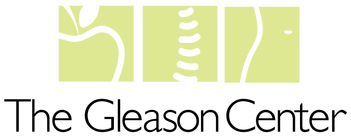|
By: Gleason Center Editors, Dr. Daniel Gleason DC What’s wrong with me? Why am I sick? What disease(s) do I have? What medications are indicated? Do I need surgery? Should I see a specialist? These are all valid questions but are there much bigger ones? When you go to the doctor you fill out a history form. First you are asked your contact information, age, gender, marital status, etc. Of course right there near the top you are asked about your insurance. Then there is a section asking you to check yes or no to a long list of diseases and conditions. It also asks about your family’s history, again focusing on diseases. There is always a section for listing which medications you take, seldom asking why you take each one or how long you have been taking it. Perhaps it will ask your occupation. Usually you are asked whether you smoke and/or drink. But, at my last physical with my MD, I noted there were no questions on the form regarding what might be causing me a problem. I was not asked how many hours I slept and whether I felt rested in the morning. There were no questions about stressor in my life like job change, moving, retirement or divorce. Did I have responsibilities at home for children or aging parents? I was not asked about what I eat, drink, or think. There were not questions about how much or what kind of exercise I get? What did I like or dislike about my job? Was I exposed to toxic chemicals on the job? How about my BMs, how frequent were they, what was there consistency, etc.? A few years ago I took my 86-year-old father to a urologist and the form there didn’t even ask him how much water, soda or coffee he drank. Yes, a urologist! There the focus was on a slightly elevated PSA and the need for a prostate biopsy and bladder scope. The questions that were asked seemed to be designed to go from test to diagnosis to procedure to medication or surgery. I would suggest that the bigger questions would be about lifestyle. These are the things that contribute to health and if ignored lead to health problems. You may note that I’m not using the word “disease”. Disease-focus usually leads directly to treatment bypassing the bigger questions about cause. You would not use the disease approach to solve any other problem in your life. If your car was acting up, you would not diagnose it with engine-itis and prescribe a pill to put in the gas tank to treat it. You would check its timing, electrical circuits, fuel pump pressure, alignment, tire pressures, charging system, etc. Then you would deal with the cause of the probem. Why do we call high blood pressure Essential Hypertension (Essential = we don’t know what causes it and aren’t particularly interested in trying to find out) and as a first line of treatment prescribe drugs? This is where questions about sleep, diet, exercise, stress, job, and family might be bigger questions. By asking these kind of questions and looking for the causes we may be able to reduce or eliminate many cases of over-treatment and over-prescription. There are those who use a different approach than diagnosis>disease>drugs or surgery. Natural health practitioners like chiropractors, naturopaths, psychologists, acupuncturists and nutritionists are much more likely to ask the bigger questions and suggest interventions that deal with the source of the problem. They promote health instead of treating disease. They will look for interference in the neural and meridian pathways. They will test and determine what nutrients are lacking or what toxins you may be accumulating. They will guide you in dealing with you family or job related stressors. They can help you find help with sleep, exercise, diet, and digestion. These healers, often labeled alternative or hopefully complementary, can help you find the causes and help you make an individual plan to live a healthy life. If you like this post, you might also enjoy our: January Newsletter
0 Comments
Leave a Reply. |
CONNECT WITH US!Follow us on Facebook for weekly inspiration, newsletters, recipes, and giveaways!
CATEGORIES
All
SEARCH THE BLOG |
Take the first step. We're ready for you.
616-846-5410
M/W/F 8:00am - 5:30pm
Closed 12:30pm - 1:30pm (Lunch)
T/Th 8am - 1pm
Sat/Sun Closed
Home | Order Supplements | Privacy | Terms | Contact | Facebook | Review Us
M/W/F 8:00am - 5:30pm
Closed 12:30pm - 1:30pm (Lunch)
T/Th 8am - 1pm
Sat/Sun Closed
Home | Order Supplements | Privacy | Terms | Contact | Facebook | Review Us
Information and products offered here are not intended to diagnose, treat, cure, or prevent any disease. Statements have not been evaluated by the FDA.
© 2023 The Gleason Center
© 2023 The Gleason Center



